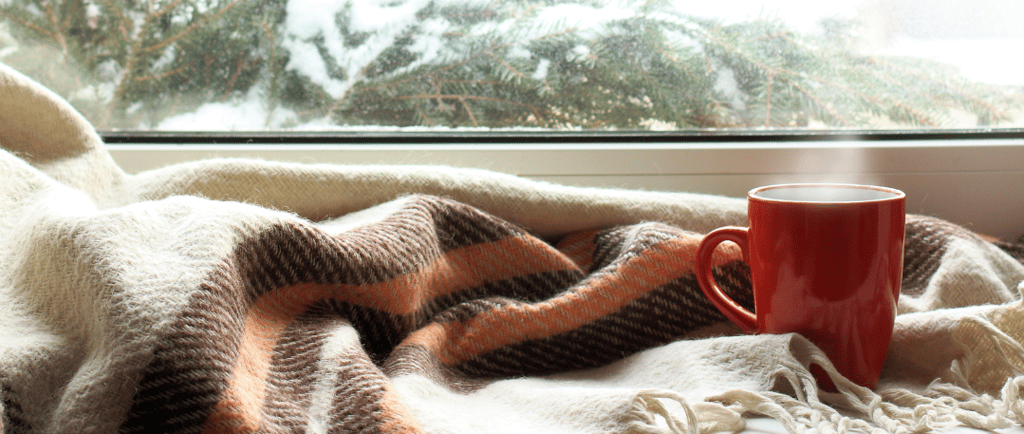Humidity Matters: Solving Winter Dryness at Home
How to combat dry air in your home.
Caleb Hoot
12/30/20244 min read


Brrr it's cold and getting colder! I thought I'd take a minute to address a question I often get this time of the year. "Why is my house so dry during the winter?" Waking up dried out, parched, and with chapped lips is no fun. Add on to that irritated eyes, nose, throat, and worsened allergies and you quickly start to wonder..."is this normal...do I have to live with this?". The answer is no. Air quality is so important and different times of the year require different tactics. However, achieving comfortable air quality in your home during the winter is possible and I'm here to explain a few strategies.
Why Is Winter Air So Dry?
During the colder months, the outdoor air holds less moisture. When this dry air gets heated inside your home, the relative humidity drops even further. This is why you might notice chapped lips, itchy skin, or even creaky wood floors. A warm home feels cozy, but without the right humidity levels, that coziness can quickly become uncomfortable.
How Dry Air Affects Your Home and Health
Dry air isn’t just a nuisance; it can cause real issues in your home and for your health:
Health Problems: Dry air can irritate your skin, eyes, nose, and throat. It’s especially tough on people with asthma, allergies, or respiratory issues. Plus, viruses like the flu thrive in low-humidity environments, making it easier to get sick.
Damage to Your Home: Dry air pulls moisture from everything around it. Wood furniture, floors, and even musical instruments can crack or warp. You may also notice peeling wallpaper or gaps in molding and doors.
Higher Energy Costs: When the air in your home is too dry, it feels cooler than it really is. That means you might crank up the thermostat to stay warm, driving up your energy bills.
Solutions to Combat Dry Air
The good news? You don’t have to put up with dry air all winter. Here are some tried-and-true solutions I recommend to our customers:
Install a Whole-Home Humidifier At Hoot Heating & Cooling, we’re big believers in whole-home humidifiers. These systems integrate directly with your HVAC system to maintain ideal humidity levels throughout your house. Unlike portable humidifiers, they require minimal maintenance and don’t need to be refilled with water constantly.
A whole-home humidifier not only helps with comfort but also protects your home’s structure and furnishings from damage. Plus, it can make your heating system more efficient because humidified air feels warmer.
Monitor Humidity Levels I always recommend investing in a hygrometer. This handy device measures the humidity in your home. Ideally, you’ll want to keep humidity levels between 30% and 50%. Too low, and the air becomes uncomfortably dry. Too high, and you risk mold growth and condensation issues. If you’re unsure about your humidity levels, we’re happy to help assess your home.
Seal Your Home A drafty home allows cold, dry air to sneak inside. Sealing windows, doors, and any other gaps not only reduces dryness but also improves energy efficiency. If you’re not sure where to start, a professional home energy audit can identify areas that need attention.
Add Moisture with Portable Humidifiers While I’m a strong advocate for whole-home solutions, portable humidifiers can be a good temporary fix, especially in bedrooms or small spaces. Just keep in mind they require regular cleaning and refilling to work effectively and prevent mold or bacteria growth.
Don’t Forget About Ventilation Proper ventilation plays a key role in maintaining indoor air quality. A heat recovery ventilator (HRV) or energy recovery ventilator (ERV) can help balance indoor humidity while bringing in fresh air and exhausting stale air. These systems work hand-in-hand with your HVAC system to keep your home’s air healthy and comfortable year-round.
Understanding Your Home's Unique Needs
Every home is a little different when it comes to maintaining the perfect indoor environment. Factors like the size of your home, the quality of insulation, and even the materials used in construction can all play a role in how dry or humid your home feels in the winter.
For instance, older homes with less insulation may experience more drafts, which allow dry air to enter more easily. On the other hand, newer homes built to be airtight can sometimes trap air that becomes stale and dry. Understanding the unique challenges of your home is the first step toward finding the right solution.
You might also notice that some rooms feel drier than others. This could be due to uneven heating or air circulation issues. If you have specific "problem areas" in your home, addressing these localized issues can make a big difference.
If you're unsure where to start, keeping a journal of the symptoms you’re noticing—like dry skin, static electricity, or creaky floors—and where they’re most prevalent can provide valuable clues. This information can help pinpoint the most effective solution for your home.
How We Can Help
If you’re tired of dealing with dry air, we’d love to help. Here’s what we offer:
Free Consultations: Let’s talk about your home’s specific needs and find the best solution for you.
Professional Installation: Our team has the expertise to install and maintain whole-home humidifiers, ventilation systems, and more.
Ongoing Support: We’re always here to answer questions, perform maintenance, or troubleshoot any issues.
Final Thoughts
Winter doesn’t have to mean dry skin, creaky floors, or a stuffy nose. With the right approach, you can enjoy a warm, comfortable home without the downsides of dry air. If you’re ready to make your home a haven this winter, give Hoot Heating & Cooling a call at 615-489-2358
From my family to yours, stay cozy and healthy this winter!
Warm regards,
Caleb Hoot
Owner, Hoot Heating & Cooling
Address
115 Malone Street
Brush Creek, TN 38547
Serving Middle Tennessee
📍 Nashville, Lebanon, Cookeville, Gallatin, Murfreesboro, Hartsville, Mt. Juliet, Carthage, and surrounding areas in Tennessee.
